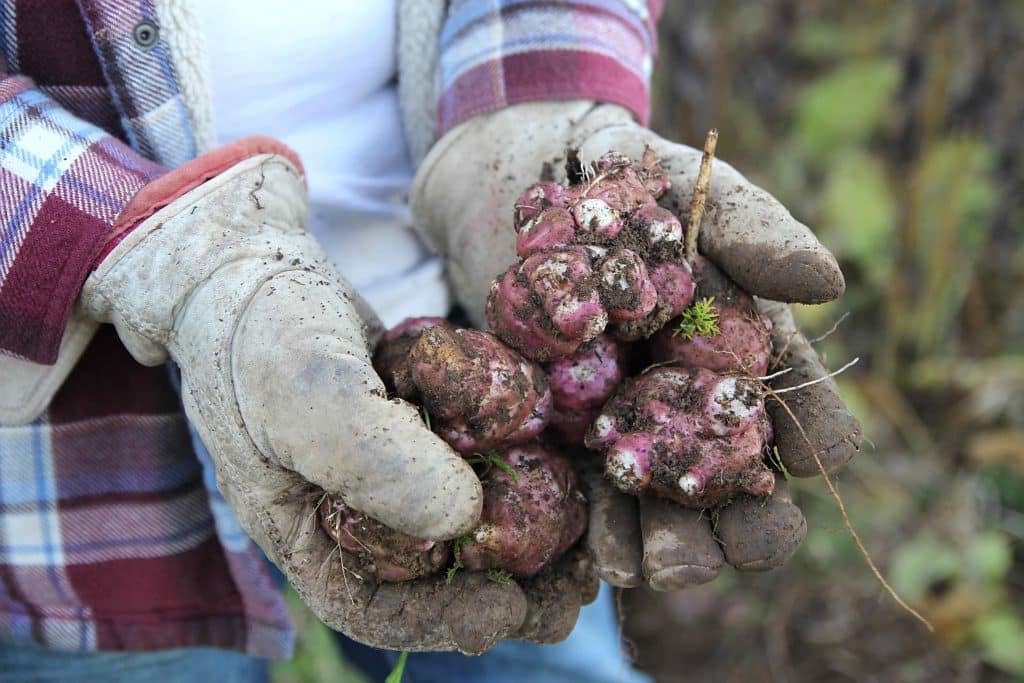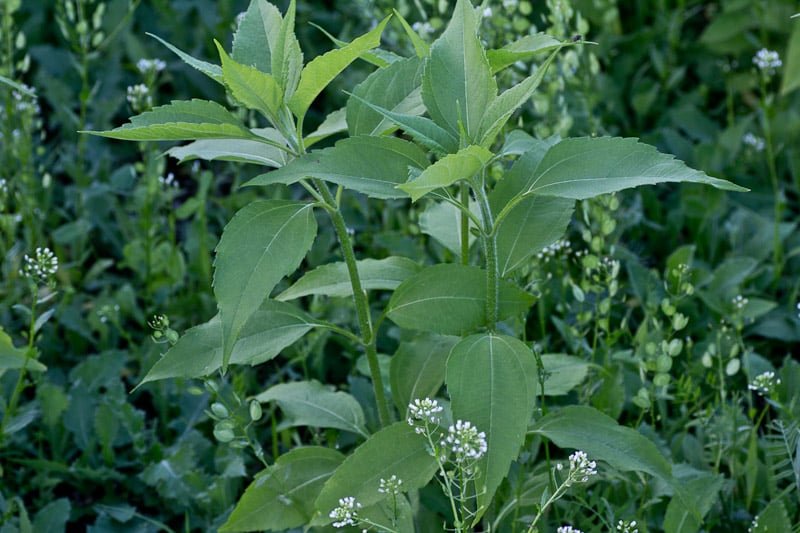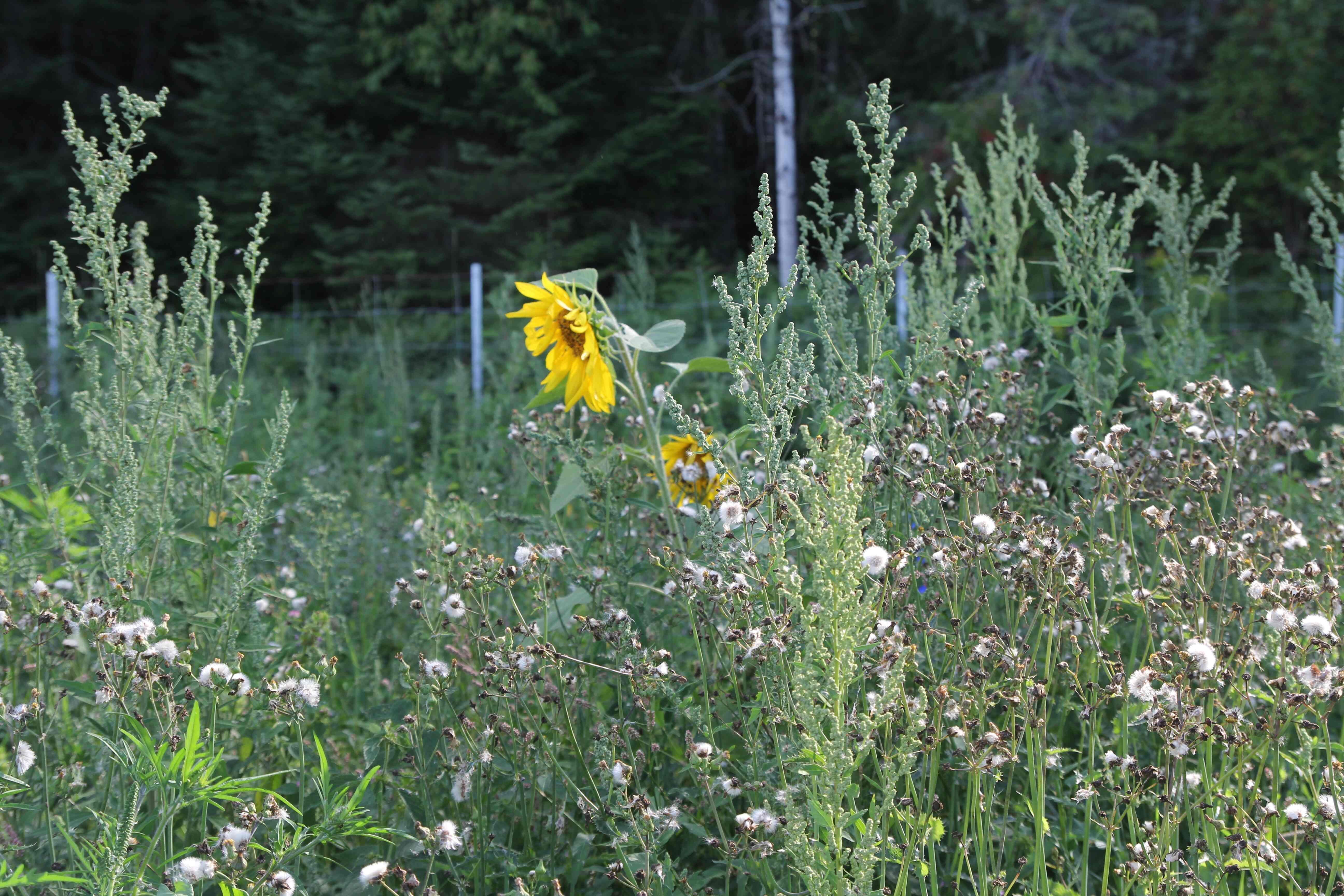
The Jerusalem artichoke (Helianthus tuberosus)also known as Sunchoke, is a species of sunflower native to eastern North America. It is cultivated for the tuber which is treated as a root vegetable. The flower will grow 8-10' tall producing lovely sunflowers in August but unlike other sunflowers this species does not provide seed/oil and it used exclusively for the tuber.
This perennial vegetable is hardy to zone 3 and very easy to grow. Keep in mind that is quite an aggressive perennial and will spread out of control if not well managed. In fact, a lot of people say that once you plant it, you'll never get rid of it. For those looking for a reliable, hassle free food item - it's an excellent choice! :)
You can also plant it in deep containers if you'd like more control.
Some people clip off the flower heads so that the plant invests it's growth into the tubers. We don't do this because I love the sunflowers that they produce later in the season and so do the bees. We still get nice sized tubers.

When to Plant
Plant the tubers in the early spring as soon as the ground can be worked. Whole tubers or pieces of tubers with two or three prominent buds are the best to plant (you can treat them much the same as potato seed). Plant 18" apart.
When to Harvest
Harvest what you need after the first frost or let them overwinter and harvest in the spring. Allowing the tubers to experience frost helps reduce the inulin. Jerusalem artichokes produce a large numbers of edible tubers. You can usually pull up most of the tubers simply by yanking on the flower stem.

Health Benefits
Jerusalem Artichokes are high in inulin which can cause some people to suffer from gas after eating. Harvesting after a frost breaks down some of the inulin making them easier to digest. It's best to serve them in small portions until your body has adapted to them. They are an excellent food item for people who need to control their blood sugar levels, reduce cholesterol or blood pressure. They are also high in iron.

How To Eat
They can be fried, mashed, eaten raw or pickled. I prefer pickled or raw. They have a bit of a watery texture, and as a potato lover, I just can't see my way to accepting them as a substitute. Their texture is a bit like a water chestnut or jicama.

Fun Idea
We decided to plant a bunch of Jerusalem artichokes throughout the pig pasture. It's currently unoccupied which will give them plenty of time to spread. Should we get more pigs it will be a nice nutritious treat for them to find.
You might also like: Why You Should Grow Perennial Chives
Sources Diabetes Control | Walkerland
Building a greener, more beautiful world one seed at a time.
Homesteading | Gardening | Frugal Living | Preserving Food| From Scratch Cooking|
You can also find me at: walkerland.ca
Photo copyright: @walkerland

